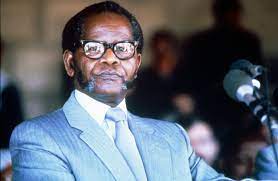Tambo initially wanted to study medicine, but at the time, no tertiary medical school accepted Black students in that field. He opted to study the sciences at the then-named College of Fort Hare. It was there that he first met Nelson Mandela, where both were members of the Students Christian Association (SCA). From his first year Tambo taught Sunday school. He was also part of a group of eight students whose singing was broadcast by the local radio station in Grahamstown, Eastern Cape. At this time Tambo was stricken with asthma, a condition that he endured throughout his life.
In 1941, a White person in charge of the university kitchen assaulted Black women working there. An enquiry into the issue exonerated the man involved. The students convened a meeting and following intense debate, influenced by Tambo’s guidance, staged a boycott of classes in protest. In 1942, he was unanimously elected chairperson of the Students’ Committee of his residence, Beda Hall. After three years, Tambo graduated with a B.Sc. degree in mathematics and physics from Fort Hare. He then enrolled for a diploma in higher education.
During this period Tambo led an initiative for students to rebuild a disused tennis court on the campus in order to pass the time on Sundays. When the tennis court was completed, the students scheduled an opening ceremony, which Tambo reported to the warden. The authorities declined permission for the students to play tennis on Sundays, as they believed it was a breach of the faith.
The students then embarked on a policy of non-cooperation with the university authorities. As a consequence, Tambo, who at the time was secretary of the Students Representative Council, together 45 other students, was expelled. All but 10 of them were readmitted after two or three weeks.
After his expulsion, Tambo went back to his home in Kantolo. He then applied for teaching jobs but was turned down when prospective employers learnt that he was expelled from university. Fortunately, he was offered a position as a teacher in physics and mathematics at his alma mater, St Peter’s, where he spent five years. Former students taught by him recalled his engaging style of teaching and consider him an outstanding teacher. During this period Tambo became part of a small network of the young African elite in Johannesburg.
